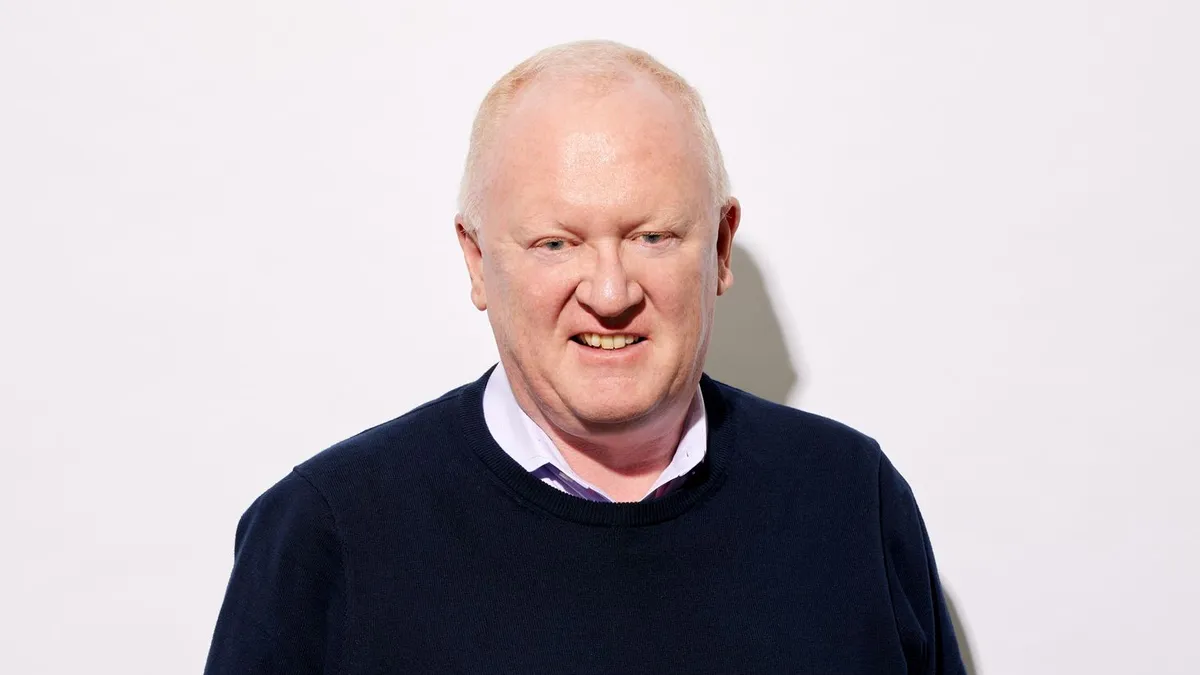Stelara. Tremfya. Remicade.
These are just a few of the big-name drugs that Murray McKinnon helped usher to the market in his more than 35 years working in drug discovery for Janssen, Bristol Myers Squibb and Glaxo Wellcome, now GSK. Some people spend their entire working lives in drug development without a fraction of the success that McKinnon has had.
“I’ve been very fortunate in my career to have put roughly 30 drugs into the clinic, and I’ve supported the development of six marketed products,” he said.
Yet, McKinnon recently left Big Pharma to jump into a startup with less than 40 employees. While it’s a move that may sound risky to some, McKinnon said he finds it “rejuvenating.”
“Small companies don’t scare me,” he said.
The small company in question is Empress Therapeutics, where he now serves as chief scientific officer. Empress was founded in 2020 by Flagship Pioneering, the biotech incubator behind Moderna and over 140 other companies, but only officially launched in June 2023 with an initial $50 million commitment from Flagship.
"The Empress concept is to start to revolutionize small molecule drug discovery by applying the power of genetics to source chemistry from within the body."

Murray McKinnon
CSO, Empress Therapeutics
Empress aims to tap into our genetic code’s ability to produce chemical compounds called metabolites, which are a source of potential small molecule medicines, as a way to develop drug candidates quickly and predictably.
“The thesis was, ‘Can we identify drugs from within?’” McKinnon said. “One of the sources of those drugs is the microbiome.”
Although McKinnon clarified that Empress is not a microbiome company, he said it is looking at “bacterial DNA as a source of novel medicinal chemistry.” For instance, the trillions of bacteria living inside our bodies create molecules that are active against human diseases.
“The Empress concept is to start to revolutionize small molecule drug discovery by applying the power of genetics to source chemistry from within the body,” he said.
Empress plans to use patient samples of metagenomic DNA and human data sets and then analyze that information with “a proprietary suite of computational and genetic technologies” it calls Chemilogics.
The preclinical company claims that doing so will allow it to identify human active chemistry that’s relevant in the context of human disease, as well as compare those chemistries between humans who are healthy and humans with disease. In a press release announcing its launch in June, the company said this approach could “revolutionize” small molecule drug discovery.
So far Empress has generated 15 molecules across multiple target classes for several indications, and the company expects to file multiple IND applications in the next 24 months. None of those candidates have been tested in nonhuman primates yet, the company’s CEO Jason Park told Fierce Biotech.
“As an example, we used genetic and clinical data to find multiple chemical compounds predicted to be protective in the context of inflammatory bowel disease,” McKinnon said. “Then we demonstrated those molecules to have favorable pharmaceutical properties and activity in relevant animal models. It really supports our thesis that we’re identifying truly drug-like, novel chemistry.”
Empress started the platform with bacteria from the gut, since that’s where the majority of the microbes in our bodies reside. But it’s only the beginning, according to McKinnon.
“[Inflammatory bowel disease] is just one of many opportunities already identified, and we’re applying the platform to other indications, including oncology and metabolic diseases,” McKinnon said.
A ‘chemistry-first’ approach
McKinnon grew up in Glasgow, Scotland, and holds a Ph.D. in biochemistry, which he earned while he was working as a research scientist at Glaxo Wellcome in the ‘80s and ‘90s. The company not only funded his degree, but also allowed him to leave for three years and return when he was finished.
That interest in chemistry has come full circle at Empress.
“In a traditional pharma company, you start with a target, often based on genetics,” he said. With Empress, it starts with a drug-like molecule using genetics.
“Empress piqued my interest because it was a novel approach that really takes a chemistry-first strategy,” he said. “The fact that we're taking that chemistry-first strategy allows us to start to identify potential new pathways and targets that others haven't before.”
He was also excited to work within the Greater Boston innovation ecosystem, drive a novel platform and experience some of the quick and nimble decision making of a small biotech company.
“I think what I'm going to bring is not just my 37 years of experience in immunology, inflammation, oncology, drug discovery and early development, but the learnings I’ve taken in building teams and working collaboratively internally in an organization and working collaboratively externally,” he said.
"The fact that we're taking that chemistry-first strategy allows us to start to identify potential new pathways and targets that others haven't before."

Murray McKinnon
CSO, Empress Therapeutics
As a leader, McKinnon said he has always wanted to help his direct reports and the people around him do well, mentoring them and offering them opportunities to learn and be successful in the same way that his mentors and advocates did for him.
“I get a great kick out of seeing other people succeed; seeing my direct reports succeed and seeing their reports succeed,” he said. “In many respects, I get more enthusiasm and enjoyment out of seeing other people around me be successful than I do from a personal perspective. And I thought the opportunity to make an impact here in a small company would be significant.”
When McKinnon reflects on all the drugs he’s helped bring to the market, he said he’s proud of that work and recognizes its impact for patients but doesn’t take much personal credit, calling it “a team sport.”
Instead, he looks to the future and unmet needs that still exist.
“Yes, we've brought some really nice drugs for psoriasis patients and IBD patients and RA patients. But there’s still unmet needs,” he said. “Those drugs go a long way to addressing patients’ needs, but there [are] no cures. Ultimately, the real drive and the area I get excited about is: Can we start to cure disease? The ultimate goal of a drug discoverer is to find a cure for a disease or to detect a disease early.”
While it’s still early, he sees potential for both with Empress.
“I see great opportunities in the platform to be utilized not just in drug discovery, but in diagnosis, risk assessment, and maybe, ultimately for cures,” he said. “The opportunity to take all my learnings from my previous 37 years and apply them to Empress is particularly exciting.”



















